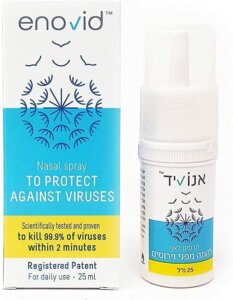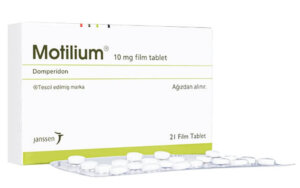There is a natural and quite normal link between the volume of news “from the front line” on TV and the levels of anxiety the population feels. Acts of kindness, stories of hope, or ‘top five most outstanding sunsets today’ rarely make headlines. How much more so, in times like these, where unprecedentedly dramatic events are playing out in real-time; the news is more likely to induce stress and anxiety than it is to reduce it.
The thought that “the more information you have, the better” is not always congruent with mental health and well-being. People react differently to change, especially when it invokes feelings of danger or loss. With so many different points of conflict running in parallel, the media has no shortage content that can induce higher levels of anxiety in even the most level-headed people.
We are all sorting through news during a time in history when levels of anxiety and depression can arise even in the most level-headed and stable of people. In times like these, turning to your healthcare provider is a sign of strength – not a weakness. Getting help from a professional can ease the trauma and emotional pain when stress pushes you into unfamiliar territory. As prescription providers, we can say this with confidence because antidepressants and antipsychotic medications are two of the most prominent categories of prescriptions we sell. The efficacy of these medications is well established and doctors understand the benefits and how to mitigate potential side effects.
*All names in the table are US brand names. IsraelPharm may be supplying the same drug with a different name. However, it is still a branded drug marketed under different names in other countries.
CALL 988 if you or someone you know needs support! If you feel that you or someone you care about might be suffering from elevated levels of anxiety, it is essential to get professional help. This is especially important when a person is experiencing suicidal or self-harm thoughts. The Suicide & Crisis Lifeline (dial 988) has replaced the older 10-digit National Suicide Prevention Lifeline. It operates around the clock to allow trained counselors to help people experiencing substance abuse, suicide, and/or mental health crises.
We are all sorting through news during a time in history when levels of anxiety and depression can arise even in the most level-headed and stable of people. In times like these, turning to your healthcare provider is a sign of strength – not a weakness. Getting help from a professional can ease the trauma and emotional pain when stress pushes you into unfamiliar territory. As prescription providers, we can say this with confidence because antidepressants and antipsychotic medications are two of the most prominent categories of prescriptions we sell. The efficacy of these medications is well established and doctors understand the benefits and how to mitigate potential side effects.
What conditions are treated by antidepressants?
Antidepressants are primarily used for treating mood disorders such as major depressive disorder (MDD) and various types of anxiety disorders. They are sometimes also employed in the management of other conditions like chronic pain, fibromyalgia, and certain sleep disorders. Antidepressants most commonly work by modifying the concentrations of neurotransmitters like serotonin, norepinephrine, and dopamine in the brain. The main types of drugs are:- Selective serotonin reuptake inhibitors (SSRIs), inhibit the reuptake of serotonin, making more of it available in the synapses between individual nerve cells.
- Serotonin-norepinephrine reuptake inhibitors (SNRIs), work by inhibiting the reuptake of both serotonin and norepinephrine. Some SNRI medications also increase dopamine levels. SNRIs can be prescribed to those who have had unsuccessful treatment for depression using SSRIs.
- Norepinephrine and dopamine reuptake inhibitors (NDRIs) promote the reabsorption of norepinephrine and dopamine.
- Tricyclic antidepressants (TCAs) were among the first antidepressants developed. They have largely been superseded by newer drugs that have fewer side effects. They may be prescribed when other antidepressants have failed. In addition to depression, TCAs may also be used to treat symptoms like anxiety and bed-wetting.
- Mood regulation
- Lowering levels of anxiety
- Chronic neuropathic pain management
What conditions are treated by antipsychotics?
Antipsychotics are generally used for conditions like schizophrenia, bipolar disorder, and severe forms of depression that feature psychotic symptoms such as hallucinations or delusions. They can also be used in the management of acute mania, agitation, and certain neurological conditions. Antipsychotic medications often target dopamine pathways in the brain, though they can also affect other neurotransmitters like serotonin. The main categories include typical antipsychotics (first-generation), which primarily block dopamine receptors, and atypical antipsychotics (second-generation), which affect both dopamine and serotonin receptors. The targeted benefits of antipsychotics are:- Controlling symptoms such as hallucinations, delusions, and extreme forms of agitation.
- Mood stabilization in conditions like bipolar disorder.
- Adjunctive use alongside other medications to boost their effectiveness.
- Atypical antipsychotics are primarily used to treat schizophrenia, which can also be effective when other treatments fail, especially in treatment-resistant depression.
Summary
Antidepressants are mainly geared toward mood and anxiety disorders, while antipsychotics are designed for conditions featuring psychotic symptoms, bipolar disorders, and mood instability.What medications are most often prescribed to treat stress, depression, and anxiety?
The table below details some of the most purchased products in this category. Please remember that before taking any medication, it’s essential to consult a healthcare provider for a proper diagnosis and treatment plan, considering the potential benefits and side effects. For more details on the precise function, action, and side effects of each drug, click on the product.| Product Name* | Type & short description | US retail price per tablet | IsraelPharm price per tablet |
| Trintillex | SSRI – treatment of MDD in adults. | all – $15.50 | 5mg – $1.90 10mg – $3.00 20mg – $4.90 |
| Wellbutrin XL | NDRI – used to treat MDD and seasonal affective disorder. | 150mg – $66.70 300mg – $93.30 | 150mg – $1.50 300mg – $2.70 |
| Effexor XR | SNRI- for treatment of recurrent depression, generalized anxiety disorder (GAD), and social anxiety Disorder (SAD). | 37.5mg – $16.25 75mg – $18.50 150mg – $19.80 | 37.5mg – $1.50 75mg – $0.75 150mg – $1.10 |
| Prozac | SSRI – used to treat MDD by increasing levels of serotonin in the brain. | 20mg – $19.00 | 20mg – $1.10 |
| Cymbalta | SNRI – for treatment of MDD and some forms of long-term pain in adults. | 20mg – $9.00 30mg – $10.00 60mg – $9.50 | 20mg – $2.10 30mg – $1.35 60mg – $2.75 |
| Regalia – generic Vraylar | Atypical antipsychotic – for treatment of schizophrenia, bipolar I disorder, or an add-on for antidepressants in MDD | 1.5mg – $45.50 All others – $48.50 | 1.5mg – $5.40 All others – $5.75 |
| Escitalopram – generic Lexapro | SSRI – serotonin regulator to treat depression and anxiety and regulate mood. | All – $14.00 | 10mg – $1.10 20mg – $1.50 |
| Lamictal | Anticonvulsive – used to stabilize mood in bipolar disorder. | 25mg – $31.50 100mg – $18.25 200mg – $21.50 | 25mg – $1.00 100mg – $1.80 200mg – $1.80 |
| Zoloft / Lustral | SSRI – used to treat depression and improve mood. | 50mg – $13.75 100mg – $13.75 | 50mg – $0.65 100mg – $1.00 |
| Norpramin | TCA – for treatment of depression, anxiety, and some other conditions. | 25mg – $2.00 | 25mg – $0.80 |
















